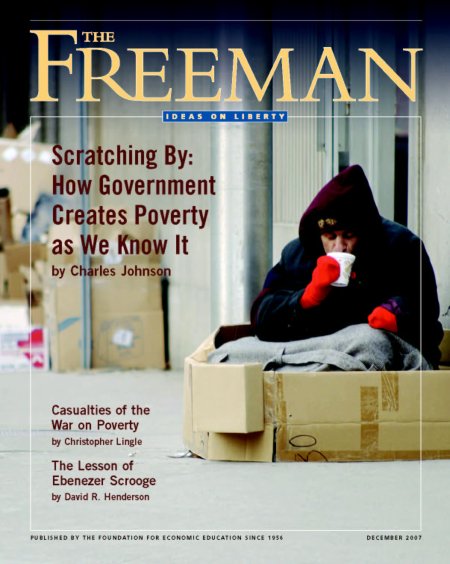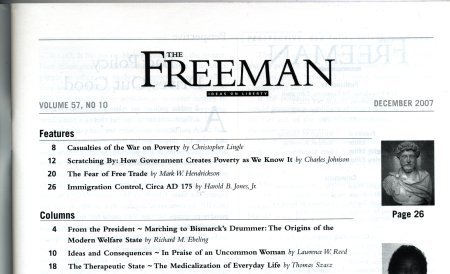Posts filed under Quotes
Disobedience Day
I have been so greatly disappointed with the white church and its leadership. … I say it as a minister of the gospel, who loves the church; who was nurtured in its bosom; who has been sustained by its spiritual blessings and who will remain true to it as long as the cord of life shall lengthen. … In spite of my shattered dreams of the past, I came to Birmingham with the hope that the white religious leadership of this community would see the justice of our cause, and with deep moral concern, serve as the channel through which our just grievances would get to the power structure. I had hoped that each of you would understand. But again I have been disappointed. I have heard numerous religious leaders of the South call upon their worshippers to comply with a desegregation decision because it is the law, but I have longed to hear white ministers say,
follow this decree because integration is morally right and the Negro is your brother.In the midst of blatant injustices inflicted upon the Negro, I have watched white churches stand on the sideline and merely mouth pious irrelevancies and sanctimonious trivialities.

We know through painful experience that freedom is never voluntarily given by the oppressor; it must be demanded by the oppressed. Frankly, I have never yet engaged in a direct action movement that was
well timed,according to the timetable of those who have not suffered unduly from the disease of segregation. For years now I have heard the wordsWait!It rings in the ear of every Negro with a piercing familiarity. ThisWaithas almost always meantNever.We must come to see with the distinguished jurist of yesterday thatjustice too long delayed is justice denied.We have waited for more than three hundred and forty years for our constitutional and God-given rights. The nations of Asia and Africa are moving with jet-like speed toward the goal of political independence, and we still creep at horse and buggy pace toward the gaining of a cup of coffee at a lunch counter. I guess it is easy for those who have never felt the stinging darts of segregation to say,
Wait.But when you have seen vicious mobs lynch your mothers and fathers at will and drown your sisters and brothers at whim; when you have seen hate filled policemen curse, kick, brutalize and even kill your black brothers and sisters with impunity; when you see the vast majority of your twenty million Negro brothers smothering in an airtight cage of poverty in the midst of an affluent society; when you suddenly find your tongue twisted and your speech stammering as you seek to explain to your six-year-old daughter why she can’t go to the public amusement park that has just been advertised on television, and see tears welling up in her eyes when she is told that Funtown is closed to colored children, and see the depressing clouds of inferiority begin to form in her little mental sky, and see her begin to distort her little personality by unconsciously developing a bitterness toward white people; when you have to concoct an answer for a five-year-old son asking in agonizing pathos:Daddy, why do white people treat colored people so mean?; when you take a cross-country drive and find it necessary to sleep night after night in the uncomfortable corners of your automobile because no motel will accept you; when you are humiliated day in and day out by nagging signs readingwhiteandcolored; when your first name becomesnigger,your middle name becomesboy(however old you are) and your last name becomesJohn,and your wife and mother are never given the respected titleMrs.; when you are harried by day and haunted by night by the fact that you are a Negro, living constantly at tip-toe stance never quite knowing what to expect next, and plagued with inner fears and outer resentments; when you are forever fighting a degenerating sense ofnobodiness; then you will understand why we find it difficult to wait. There comes a time when the cup of endurance runs over, and men are no longer willing to be plunged into an abyss of despair. I hope, sirs, you can understand our legitimate and unavoidable impatience.You express a great deal of anxiety over our willingness to break laws. This is certainly a legitimate concern. Since we so diligently urge people to obey the Supreme Court’s decision of 1954 outlawing segregation in the public schools, it is rather strange and paradoxical to find us consciously breaking laws. One may well ask:
How can you advocate breaking some laws and obeying others?The answer is found in the fact that there are two types of laws: There are just and there are unjust laws. I would be the first to advocate obeying just laws. One has not only a legal but a moral responsibility to obey just laws. Conversely, one has a moral responsibility to disobey unjust laws. I would agree with Saint Augustine thatAn unjust law is no law at all.… So I can urge men to disobey segregation ordinances because they are morally wrong.…
I must make two honest confessions to you, my Christian and Jewish brothers. First, I must confess that over the last few years I have been gravely disappointed with the white moderate. I have almost reached the regrettable conclusion that the Negro’s great stumbling block in the stride toward freedom is not the White Citizen’s Counciler or the Ku Klux Klanner, but the white moderate who is more devoted to
orderthan to justice; who prefers a negative peace which is the absence of tension to a positive peace which is the presence of justice; who constantly saysI agree with you in the goal you seek, but I can’t agree with your methods of direct action;who paternalistically feels he can set the timetable for another man’s freedom; who lives by the myth of time and who constantly advises the Negro to wait until amore convenient season.Shallow understanding from people of goodwill is more frustrating than absolute misunderstanding from people of ill will. Lukewarm acceptance is much more bewildering than outright rejection.I had hoped that the white moderate would understand that law and order exist for the purpose of establishing justice, and that when they fail to do this they become dangerously structured dams that block the flow of social progress. I had hoped that the white moderate would understand that the present tension in the South is merely a necessary phase of the transition from an obnoxious negative peace, where the Negro passively accepted his unjust plight, to a substance-filled positive peace, where all men will respect the dignity and worth of human personality. Actually, we who engage in nonviolent direct action are not the creators of tension. We merely bring to the surface the hidden tension that is already alive. We bring it out in the open where it can be seen and dealt with. Like a boil that can never be cured as long as it is covered up but must be opened with all its pus-flowing ugliness to the natural medicines of air and light, injustice must likewise be exposed, with all of the tension its exposing creates, to the light of human conscience and the air of national opinion before it can be cured. …
… You spoke of our activity in Birmingham as extreme. At first I was rather disappointed that fellow clergymen would see my nonviolent efforts as those of the extremist. … But as I continued to think about the matter I gradually gained a bit of satisfaction from being considered an extremist. Was not Jesus an extremist for love —
Love your enemies, bless them that curse you, pray for them that despitefully use you.Was not Amos an extremist for justice —Let justice roll down like waters and righteousness like a mighty stream.Was not Paul an extremist for the gospel of Jesus Christ —I bear in my body the marks of the Lord Jesus.Was not Martin Luther an extremist —Here I stand; I can do none other so help me God.Was not John Bunyan an extremist —I will stay in jail to the end of my days before I make a butchery of my conscience.Was not Abraham Lincoln an extremist —This nation cannot survive half slave and half free.Was not Thomas Jefferson an extremist —We hold these truths to be self-evident, that all men are created equal.So the question is not whether we will be extremist but what kind of extremist will we be. Will we be extremists for hate or will we be extremists for love? Will we be extremists for the preservation of injustice–or will we be extremists for the cause of justice? In that dramatic scene on Calvary’s hill, three men were crucified. We must not forget that all three were crucified for the same crime–the crime of extremism. Two were extremists for immorality, and thusly fell below their environment. The other, Jesus Christ, was an extremist for love, truth and goodness, and thereby rose above his environment. So, after all, maybe the South, the nation and the world are in dire need of creative extremists.
Further reading:
Battle-Cry
At last: some war-mongering that I can get on board with. A battle-cry that libertarians, anarchists, feminists, and all who value decent and rational conversation can join in, full-throatedly.

Carthago Delenda Est, in English, means,
Carthage must be destroyed.Have a nice day. Peace be with you. Good luck. Best wishes. Good bye. God bless. Good night. Thank you very much. All might be ways to end a talk. But in the days of the Roman Republic, Cato the Elder is said to have uttered that phrase of curse to Carthage, or one similar to it, at the close of every one of his speeches on the floor of the Senate, regardless of the subject matter.
That phrase became the rallying cry of the Punic Wars (like,
Remember the Alamo), and Carthage was, utterly destroyed. As Wikipedia reports, Carthage was,ploughed (sic) over and surviving inhabitants sold into slavery.Well, I'm going to strive to follow in Cato's footsteps.
I'm going to try, as often as I remember, until it's a habit, to close all my blog posts with the phrase,
Hardball delenda est.But my ambitions are more modest than genocide. I merely want to see MSNBC's Hardball booted off the air, with no hope of anything like it in replacement, and Chris Matthews himself standing behind a counter somewhere, wearing a paper hat, and asking those who still line up to see him,
Would you like fries with that?Hardball delenda est.
Fryeday quote
Besides taking very kind notice of my article in The Freeman, Roderick Long (2008-01-18) and Micha Ghertner (2008-01-14) each also mention the epigraph that I included — a long quotation on the experience of oppression by the radical lesbian feminist philosopher Marilyn Frye. The quotation is one of my favorite passages from her essay Oppression, in The Politics of Reality. I had originally hoped to include more of it, but the epigraph had to be trimmed back in the interest of space. The full version would have been:
The experience of oppressed people is that the living of one's life is confined and shaped by forces and barriers which are not accidental or occasional and hence avoidable, but are systematically related to each other in such a way as to catch one between and among them and restrict or penalize motion in any direction. It is the experience of being caged in: all avenues, in every direction, are blocked or booby trapped.
Cages. Consider a birdcage. If you look very closely at just one wire in the cage, you cannot see the other wires. If your conception of what is before you is determined by this myopic focus, you could look at that one wire, up and down the length of it, and be unable to see why a bird would not just fly around the wire any time it wanted to go somewhere. Furthermore, even if, one day at a time, you myopically inspected each wire, you still could not see why a bird would gave trouble going past the wires to get anywhere. There is no physical property of any one wire, nothing that the closest scrutiny could discover, that will reveal how a bird could be inhibited or harmed by it except in the most accidental way. It is only when you step back, stop looking at the wires one by one, microscopically, and take a macroscopic view of the whole cage, that you can see why the bird does not go anywhere; and then you will see it in a moment. It will require no great subtlety of mental powers. It is perfectly obvious that the bird is surrounded by a network of systematically related barriers, no one of which would be the least hindrance to its flight, but which, by their relations to each other, are as confining as the solid walls of a dungeon.
It is now possible to grasp one of the reasons why oppression can be hard to see and recognize: one can study the elements of an oppressive structure with great care and some good will without seeing the structure as a whole, and hence without seeing or being able to understand that one is looking at a cage and that there are people there who are caged, whose motion and mobility are restricted, whose lives are shaped and reduced.
–Marilyn Frye (1983), Oppression, in The Politics of Reality. pp. 4–5.
In the case of poor people — and especially poor people who live in the socioeconomic or racial ghettos of large cities — both state socialists and state capitalists have spent no end of time looking at one or two wires, and wondering why the bird behind them builds its nest in such a funny, cramped shape. Since their perspective has excluded treating state oppression of the poor in any systematic way, the state socialists, rightly understanding that poor people are basically alright, wrongly figure that the problem must be the inherent vices of the market process. The state capitalists, rightly understanding that the market process is basically alright, wrongly figure that the problem must be in the vice, folly, or ignorance of individual poor people, or poor subcultures. But both of them are wrong. To understand the problem aright, you have to start by stepping back to see the whole cage. Then, and only then, can you meaningfully talk about what poor people can do about breaking out–and what you, if you are not yourself poor, can do to help them in their efforts.
Scratching By: How Government Creates Poverty as We Know It
Here’s something I found in the mail yesterday:
Scratching By: How Government Creates Poverty as We Know It
Governments—local, state, and federal—spend a lot of time wringing their hands about the plight of the urban poor. Look around any government agency and you'll never fail to find some know-it-all with a suit and a nameplate on his desk who has just the right government program to eliminate or ameliorate, or at least contain, the worst aspects of grinding poverty in American cities—especially as experienced by black people, immigrants, people with disabilities, and everyone else marked for the special observation and solicitude of the state bureaucracy. Depending on the bureaucrat's frame of mind, his pet programs might focus on doling out conditional charity to
deservingpoor people, or putting moreat-riskpoor people under the surveillance of social workers and medical experts, or beating up recalcitrant poor people and locking them in cages for several years.But the one thing that the government and its managerial aid workers will never do is just get out of the way and let poor people do the things that poor people naturally do, and always have done, to scratch by.
Government anti-poverty programs are a classic case of the therapeutic state setting out to treat disorders created by the state itself. Urban poverty as we know it is, in fact, exclusively a creature of state intervention in consensual economic dealings. This claim may seem bold, even to most libertarians. But a lot turns on the phrase "as we know it." Even if absolute laissez faire reigned beginning tomorrow, there would still be people in big cities who are living paycheck to paycheck, heavily in debt, homeless, jobless, or otherwise at the bottom rungs of the socioeconomic ladder. These conditions may be persistent social problems, and it may be that free people in a free society will still have to come up with voluntary institutions and practices for addressing them. But in the state-regimented market that dominates today, the material predicament that poor people find themselves in—and the arrangements they must make within that predicament—are battered into their familiar shape, as if by an invisible fist, through the diffuse effects of pervasive, interlocking interventions ….
— Scratching By: How Government Creates Poverty as We Know It,
In The Freeman (December 2007), 12–17.
You can read the whole thing at The Freeman‘s website. Enjoy! FEE’s website doesn’t (yet) support online comments, but I’d be glad to hear what you think in the comments section over here.
While I’m on the subject, I’d like especially to thank Sheldon Richman for his encouragement and his help, and my companion L. for her patient reading and helpful comments. The article would have been much the poorer, or more likely nonexistent, without their aid.

